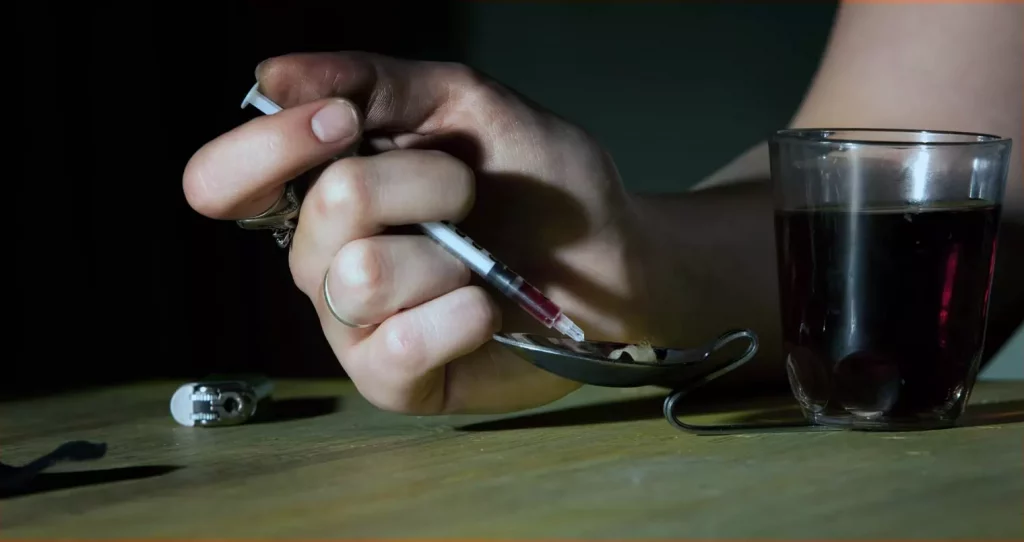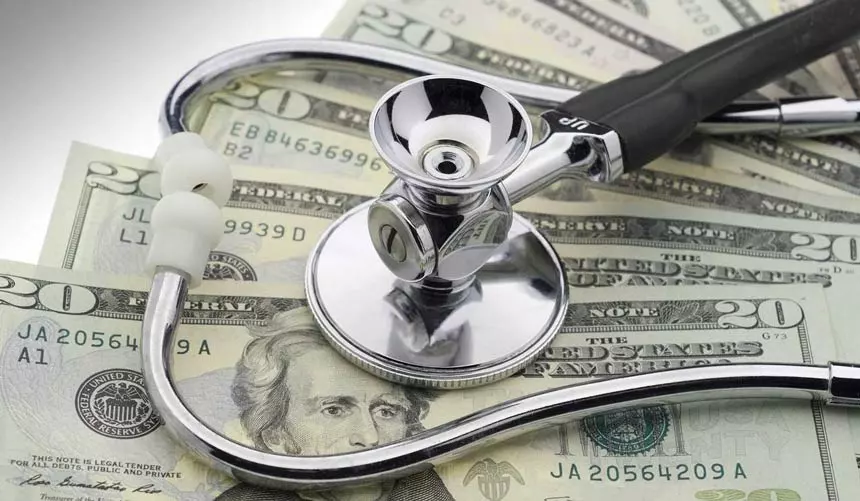What is Black Tar Heroin?
Table of Contents
- What is Black Tar Heroin?
- How does Black Tar Heroin affect the body?
- How is Black Tar Heroin Used?
- What are the Risks of Injection Drug Use?
- The Direct Health Risks of IV Drug Abuse
- What are the Risk Factors of Developing a Heroin Addiction?
- Recognizing a Black Tar Heroin Addiction
- The Side Effects of Black Tar Heroin Use
- Can You Overdose on Black Tar Heroin?
- Heroin Withdrawal Basics
- Heroin Addiction Treatment Options
- Find Addiction Treatment and Substance Abuse Services Now
- Medically Reviewed By
Heroin is a highly addictive opioid processed from Morphine, that is currently classified as a Schedule I controlled substance by the Drug Enforcement Administration (DEA). Black tar heroin is an impure variant of this drug that is often extremely dark in color. In Spanish-speaking communities, it is also known as ‘tar black heroin.’ They are one and the same.
While all forms of heroin cause negative effects on the body, Black tar heroin is the most dangerous version in terms of side effects from use. Black tar heroin’s dark color, such as a dark brown, dark orange, or black, is a result from the crude processing methods.
How does Black Tar Heroin affect the body?
Black tar heroin, as well as other forms of heroin, is a highly addictive drug. It produces a surge of pleasure or in other terms, a “rush”. According to the National Institute on Drug Abuse, heroin binds to and activates specific receptors in the brain called mu-opioid receptors (MORs).
When heroin is ingested by the body, by any means, they attach to MORs and stimulate neurotransmitters. Neurotransmitters are naturally occurring chemicals within our bodies and are responsible for regulating pain, hormone release, and feelings of well-being.
The heroin stimulation activates the release of dopamine, a natural chemical in the body that is responsible for feelings of pleasure, satisfaction and motivation, reinforcing the behavior. This is one of the reasons heroin use is addictive.
Everyone has their own struggles to overcome in life, but there are some that find it unbearable. As a life threatening way to cope and manage their own difficulties, an individual may find themselves using black tar heroin as a means to escape their overwhelming reality.
The “rush” that comes with heroin provides a warm feeling of relaxation and a suppression of pain; however, rather than improving an individual’s experience, this will only generate more difficulties. Black tar heroin leads to a declining physical and mental health.
How is Black Tar Heroin Used?
Unlike the powder forms of heroin, Black tar heroin cannot be snorted for consumption. Injection is the most common form of heroin intake. The impure heroin is usually dissolved, diluted and injected underneath the skin. This method produces a faster and more intense high.
Black tar heroin can also be ingested through foil smoking. This inhalation of heroin is the second most common form of heroin intake. As it sounds, heroin is heated on aluminum foil and the smoke is then inhaled through a straw.
Black Tar Heroin vs Powdered Heroin vs China White
Heroin comes in many different forms which can be due to the variety of places they come from. Black tar heroin is the only form in a solid, rock-like state that is primarily produced in Mexico. Due to its geographical position, this form dominates the western United States.
Black tar heroin, as opposed to other forms of the drug, has also been compared with ‘roofing tar’ to better understand its thick and sticky consistency. This impure form has statistically shown, according to the National Institute on Drug Abuse, to cause more health complications.
Contrasting the dark black solid form, heroin from Southeast Asia is a powder form of the drug. The other forms of heroin are processed in a powder form of the drug. This white powder, also known as ‘China White’ is commonly fentanyl at this point in time, and is the most water soluble powder form of heroin.
The brown powder form of heroin can come from any of the regions that produce it; however, it is most commonly seen coming from Southwest Asia. This brown powder heroin is the least water soluble among the powder forms.
South American powder heroin has been described most commonly as an off-white color. It is produced mainly in Colombia and this powder heroin is the middle ground of water soluble heroin.
What are the Risks of Injection Drug Use?
Injecting heroin provides a stronger and faster high, but leads to a rapid decline in the heroin user’s health. Heroin addicts are more likely to take on intravenous use for more powerful and immediate effects.
Improper hygiene is a major issue with intravenous injection. Poor physical hygiene can cause needles to push bacteria resting on the top of a user’s skin deep into the body, leading to soft tissue infection and health problems.
Similarly, the needles can also hold bacteria or diseases that can be as severe as hepatitis or HIV. It is important not to share equipment.
While proper cleaning and sterilization of needles before use might help limit some of the health risks, this does not eliminate the initial issue of this particular form of substance abuse. Black tar heroin can cause long lasting and even permanent damage.
Considering black tar heroin is an illegal substance, intravenous use puts the users health at risk due to contaminants as well. Without being able to properly identify the contents of their obtained substance, the user is left trusting their dealer with their health and even life.
The Direct Health Risks of IV Drug Abuse
Soft tissue allows for the body to properly move and work through the motor, nerve, and brain functions. Soft tissue makes up the supporting tissues of the body such as muscles, fat, or blood vessels. Heroin injectors put those core tissues at increased risk.
Heroin injectors have the potential to cause permanent damage such as loss of nerves and even lead to life-threatening situations including paralysis and death. With the use of illicit drugs, users are at risk of getting wound botulism.
According to the Center for Disease Control and Prevention, wound botulism is a serious illness caused by a germ called clostridium botulinum. This bacterial infection attacks the body’s nerves, causing permanent damage. While there is treatment to stop further damage from occurring, the damage done cannot be undone.
Veins make up a part of soft tissue in our bodies and allow for the proper delivery of oxygen throughout our body. According to the National Institute on Drug Abuse, black tar heroin has statistically been shown to increase the likelihood of venous sclerosis, the hardening of veins.
Black tar heroin use puts its users at increased risk of losing their core bodily functions. The after effects of this injection drug not only has life ruining effects on the physical body, but also the mentality of the user.
Visible scars from skin-popping as well as an inability to function as others regularly do can lead to feelings of isolation. These scars are usually permanent and can stigmatize intravenous use even further.
What are the Risk Factors of Developing a Heroin Addiction?
Although black tar heroin is an impure version of the drug, it remains a highly addictive substance. Roughly 80% of individuals who have used heroin misuse prescription opioids such as OxyContin and Vicodin before they arrive at black tar heroin or other forms of the drug.
There are varying situations that may lead an individual to heroin drug abuse, such as:
- Difficulties at home
- Mental health problems
- Trouble in school, trouble at work, trouble with making friends
- Being around other people who use drugs
- Starting drug use prematurely
- Biology
Recognizing a Black Tar Heroin Addiction
Admitting addiction is one of the hardest parts of the struggle, but it is the first step to recovery. The signs of an addiction are listed as:
- Opioids are often taken in larger amounts or over a longer period of time than intended.
- There is a persistent desire or unsuccessful efforts to cut down or control opioid use.
- A great deal of time is spent in activities necessary to obtain the opioid, use the opioid, or recover from its effects.
- Craving, or a strong desire to use opioids.
- Recurrent opioid use resulting in failure to fulfill major role obligations at work, school or home.
- Continued opioid use despite having persistent or recurrent social or interpersonal problems caused or exacerbated by the effects of opioids.
- Important social, occupational or recreational activities are given up or reduced because of opioid use.
- Recurrent opioid use in situations in which it is physically hazardous.
- Continued use despite knowledge of having a persistent or recurrent physical or psychological problem that is likely to have been caused or exacerbated by opioids.
- Tolerance, as defined by either of the following: (a) a need for markedly increased amounts of opioids to achieve intoxication or desired effect (b) markedly diminished effect with continued use of the same amount of an opioid.
- *Withdrawal, as manifested by either of the following: (a) the characteristic opioid withdrawal syndrome (b) the same (or a closely related) substance are taken to relieve or avoid withdrawals.
The Side Effects of Black Tar Heroin Use
Black tar heroin users face many issues in their daily lives as a result of this substance. The severity of side effects depend on a variety of factors, mainly regarding how the substance is administered and how much is usually ingested.
Short-Term Effects
Despite the euphoric “rush” that comes with Black Tar Heroin, there are several negative health effects that may occur, which include:
- Dry mouth
- Warm flushing of the skin
- Heavy feeling in the arms and legs
- Nausea and vomiting
- Severe itching
- Clouded mental functioning
- Going “on the nod,” a back-and-forth state of being conscious and semi-conscious
Long-Term Effects
Chronic heroin use will eventually result in heavy backlash within a user’s body, possibility developing side effects such as:
- Insomnia
- Collapsed veins for people who inject the drug
- Deterioration of the brain’s white matter
- Damaged tissue inside the nose for people who sniff or snort it
- Infection of the heart lining and valves
- Abscesses (swollen tissue filled with pus)
- Constipation and stomach cramping
- Liver and kidney disease
- Lung complications including pneumonia
- Respiratory depression
Can You Overdose on Black Tar Heroin?
Yes, it is possible to overdose on black tar heroin. Using too much of the drug can potentially take the user’s life. As heroin provides a feeling of relaxation, a user’s breathing often slows. A user overdosing on heroin reaches a severe slow in their breathing.
The decreased intake of oxygen limits the amount of oxygen for the brain. This is a condition called hypoxia, a state in which oxygen is not available in sufficient amounts at the tissue level to maintain proper bodily functions.
What are the Signs of Black Tar Heroin Overdose?
While there are no signs of a specific black tar heroin overdose, a heroin overdose is seen as follows.
- Slow, shallow, or no breathing
- Blue lips and fingernails
- Choking, gurgling, or snoring sound
- Slow pulse
- Conscious but unable to respond
Heroin Withdrawal Basics
Withdrawals are the biggest reasons that make stopping this drug abuse so difficult. As users build both a tolerance and dependence upon a drug, trying to stop becomes nearly impossible.
With repetitive use of heroin, the body has adjusted itself to function with heroin. When heroin is no longer being given to the body, the body begins to malfunction resulting in problems such as difficulty breathing and constipation.
Heroin Withdrawal Symptoms
Heroin users with a dependency may face severe withdrawal. These symptoms include:
- Restlessness
- Severe muscle and bone pain
- Sleep problems
- Diarrhea and vomiting
- Cold flashes with goosebumps (“cold turkey”)
- Uncontrollable leg movements (“kicking the habit”)
- Severe heroin cravings
Heroin Addiction Treatment Options
A heroin addiction is both a physical and mental battle to overcome. It is very likely that black tar heroin users have a physical dependency upon the drug and without using it, the body continues to malfunction leaving the user to experience the backlash.
Thankfully, there is a range of treatments intended to support heroin users and help them in their recovery. Joint behavioral and pharmaceutical treatments are important to integrate for maximized retention.
As an unstable life may drive someone to use black tar heroin, it is important to focus on building a meaningful lifestyle within the context of recovering from addiction.
Medical Detox
Stopping black tar heroin use may lead to detrimental or even life-threatening circumstances. But if stopping use can have such severe effects, how is a user supposed to stop? There are a range of medicines, FDA approved, to best help eliminate heroin dependency.
To help eliminate withdrawal, medicines such as Methadone will be administered to reduce opioid cravings and reduce the effects of opioids. Methadone and more commonly Suboxone works as a substitute that is weaned off as a client becomes more stable.
Inpatient Treatment
Inpatient treatment requires that a client lives at the drug rehab facility for recovery. Although living in an unknown location may seem greatly displeasing, removing a client from their current environment can best fit their needs.
Inpatient treatment likely has many supportive resources and help to assist in overcoming a drug addiction. As an addiction may have started as a means to cope or manage, it is also possible there may be an underlying mental health problem.
Outpatient Treatment
While personal limitations such as financial position or time availability may make inpatient treatment an unlikely option, outpatient treatment is available to help provide help for those individuals.
Outpatient treatment can help with being a part of a community with sober support groups or group therapy sessions. They can also help with behavioral support such as vocational groups or social building services.
Paying for Treatment
Financial problems may be stopping many in need of help from reaching out. Under the Affordable Care Act, subsidies are provided to households with incomes between 100% and 400% of the federal poverty level.
This helps give assistance to people in need of treatment yet cannot afford it. To find more information on receiving assistance under the Affordable Care Act, visit healthcare.gov. It is best to enter treatment as soon as you are able to.
Here at Find Addiction Rehabs, we help with finding treatment providers that offer services for treating substance use disorders and that are licensed and fully accredited facilities.
A medical professional that is properly certified to overlook and administer opioid treatment can provide the differing treatments for addiction. As every person is different and responds differently to medicines, the practitioner will help the client find what works for them.
Substance use disorders are mental disorders in which an individual is unable to stop the use of a substance, such as opioids or heroin. According to the National Institute of Mental Health, half of individuals who suffer from substance use disorders also suffer from underlying mental health problems.
With the 50/50 likelihood of having a co-occurring mental condition, it is likely a treatment facility has on-site help for dual diagnosis conditions along with heroin addiction.
All health insurance covers mental health and substance abuse services as essential health benefits. A client receives coverage for treatment of all pre-existing conditions on the day coverage starts.
Find Addiction Treatment and Substance Abuse Services Now
If you or a loved one are struggling with an addiction, this can be causing great mental, emotional or physical pain. At Find Addiction Rehabs, we offer confidential help in regards to addiction treatment options.
Whether finding a treatment center in your location, or connecting you with recovery tools and resources, our hotline is available 24/7 to make sure you can get the help you need, anytime you need it.
The first step of recovering from addiction is acknowledging it is a problem in your life. We hope this article has helped you or your loved ones realize the dangers of black tar. Take the next step and call us to get help today!
Eric R. hails from Maine and does extensive work in the field of behavioral health as both a professional writer and passionate advocate for those suffering. From his own personal encounters with mental illness, he speaks to those seeking healthy relief from depression and anxiety and embraces wellness both personally and professionally. After losing friends and family to the darkness of suicide, Eric aims to educate and inform about the nature of treatment and render it accessible for all those seeking a way out of darkness and despair.





